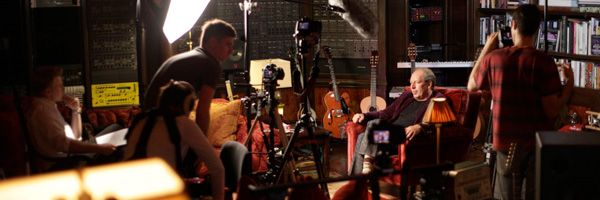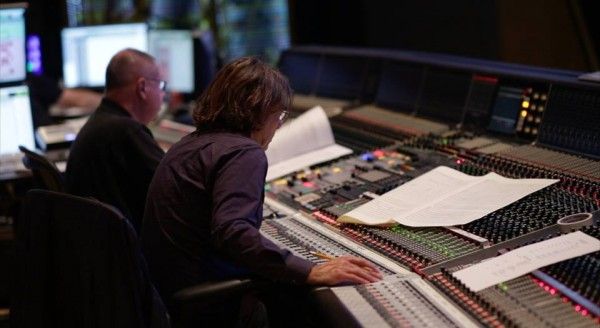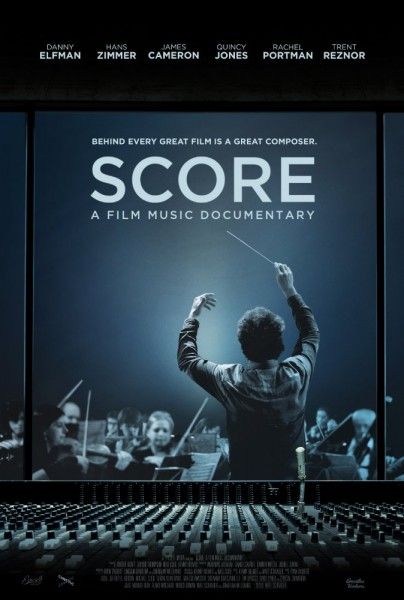Even if you’re not a film buff, you probably know a composer or two. There are movies that wouldn’t have half their power if not for the memorable score. Powerful scores manage to live beyond the films that created them, and yet they’re only seen as one piece of a larger puzzle. Matt Schrader’s Score: A Film Music Documentary finally gives composers their due. While the movie never delves into controversial subjects like directors who want music to sound like the temp tracks or how indie movies with lower budgets try to handle their scores, it nevertheless succeeds as a celebration of composers, their history, and their work.
Schrader’s documentary focuses on three areas—the history of film music, notable composers, and how those composers work. The history is more of a brief overview, taking us from the days of “silent film” and how there would be a live orchestra, through the more soundtrack-driven 1960s and then the resurgence of scores led by Jerry Goldsmith and especially John Williams. The film tries to shine a line on notable composers throughout history, but Williams (unsurprisingly) gets the most amount of attention. That being said, composers who participated in the documentary to show their workflow also take up a significant portion of the runtime so we get to see how folks like John Debney (The Jungle Book) and Tyler Bates (Guardians of the Galaxy) work.
Score functions more as a celebration of the art of composing, and it’s a worthy celebration. If anything, I wish that Schrader had more time to really do a deep dive on the various topics he was exploring. His look at the history of composing is a fine overview, but it’s easy to see there’s so much more nuance and detail that’s being left out in a 93-minute feature. It’s nice that the movie touches on Ennio Morricone’s work, but it kind of has to speed by him, having people say “He was important to westerns!” before moving on to the next composer. It’s cool to see modern composers at work, but we don’t really delve into the nitty-gritty or the conflicts they face beyond deadlines.
As it stands, Score functions more as a rough overview that leaves you wanting more even as it does an admirable job providing a brief introduction to the art of composing. It’s essentially a syllabus rather than a full course load, and hopefully after people see the movie, they’ll want to learn more about composing and do their own research. It’s a start, and any movie that does an admirable shining a light on below-the-line talent deserves to be seen.
Schrader does a fine job balancing his areas of exploration even if he doesn’t have the time to delve deeply into any of them. He’s able to get subjects talking about their work without making it too wonky or esoteric, and while Score is not the final word on the subject, it’s a good start. I’d love to see him make documentaries about other below-the-line fields like costume design, cinematography, etc.
Score will appeal to anyone who loves filmmaking and loves the music behind Hollywood movies. While those who want a deeper dive into the conflicts and controversies in the field may be left wanting, it will still have you reaching for your favorite scores and eager to learn more about the art of composing for movies.
Rating: B




